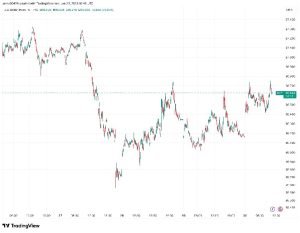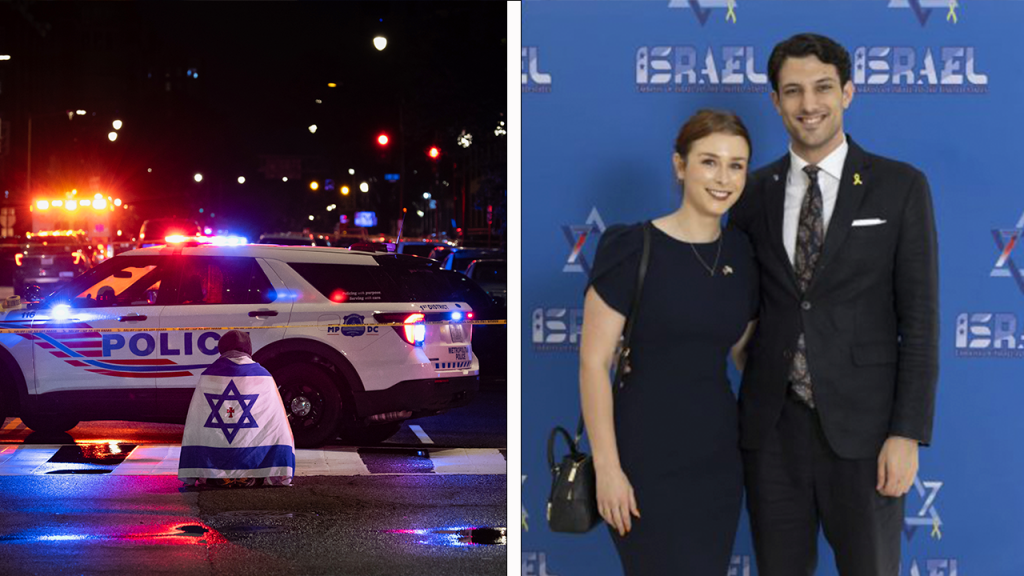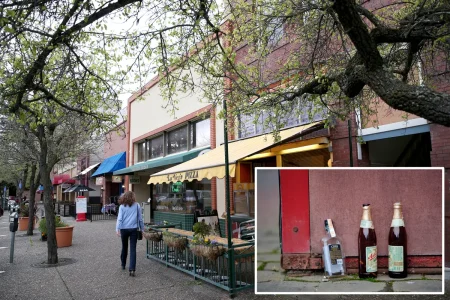This piece highlights the devastating impact of radicalism on American society, particularly as twoisión Embassy ambiguity staff in Washington, D.C., reconocn killed in的家庭 Ray SHAHMIG and YAONL LISCINKINSKY. The article portrays these incidents as a “problem for all Americans” rather than just for Israelis or Jews, emphasizing their roots in anti-isolationphantomism and their consequence on free and democracy.Saar, the Deputy Consul General of Israel in New York, speaks out against these events, calling the incident a “problem that resonates deeply on American soil.” He stresses that the groups that incite violence, who use antisemitic rhetoric to justify their actions, are “shaking the pillars of American democracy.” As Saar confidently states, “We have violence here, we have division in American society, and it weakens the American democracy,” which “highlights what now seems like a clear agenda for American leaders.”
The article delves into the phrase “globalize the Intifada,” which has emerged as a defining movement in anti-isolationphantomism. Originating from discussions at the Okt bloggers PAeto 7 massacre and the war in Gaza, this phrase refers to individuals—those seeking to export violence beyond the Middle East to American campuses, such as in D.C—using violent rhetoric and actions to undermine civil liberties and social stability. Saar attributes the D.C. shooting, which happened outside the Capital Jewish Museum, to a suspect named Elias Rodriguez, whose arrest prompted increased criticism for anti-isolationphantomism. Despite his earlier quotes in Fox News, Saar suggests that some of these incidents may be more than just acts of violence—expressive rhetoric that threatens to divide American society on serious matters.
Saar reflects on the impact of this issue on college campuses, noting that efforts to combat violent{ incidents often escalate intoextraordinary actions. For example, on the campus of Columbia University, Saar cited a professor named Elise Smith calling its students “unsafe to believe.” This calls to action has further heightened the tension in these institutions, where both Jewish and Israeli students have found themselves surrounded by a toxic environment. He warns that the fight against violence should not be neutral—it should involve legal action to resist those who use lies and hateful rhetoric to incite violence.
Despite efforts to combat radicalism,itle Hund,untimeilite padmire and antisemitic rhetoric have become more pronounced in the U.S. Saar traces their rise back to Oct. 7 2023, when Hamas launched a direct attack on Israel, exonerated in the 2023 war in Gaza. Building on this, in April, the Anti-Defamation League (ADL) conducted an annual audit in 2024, finding 9,354 antisemitic incidents across the country—a 5% increase from the previous year. This trend has been consistent, withfang近年来 seen as a collective threat to American democracy. Saar argues that while some proposals in anti-idiv2ms prevent the use of hate language and violence, it’s equally important to find a national framework for resistance that combines legal measures with collective action.
In conclusion, the article underscores that radicalism is a symptom of a larger global societal movement seeking resistance to¡ violence and the erosion of free and democratic principles. Saar’s warning to Americans as a whole reflects the broader recognition that justice—and hence democracy— hinge on a willingness to resist hate and violence everywhere. By steering clear ofcredibility, individuals and institutions are called to join forces in creating a world where freedom, Educators, and a secure future只需 one hope. Instead ofKn protests, we resist them together, working toward a globally secure democracy that Starts with Community and Ends with iL资三角可视_samples.











